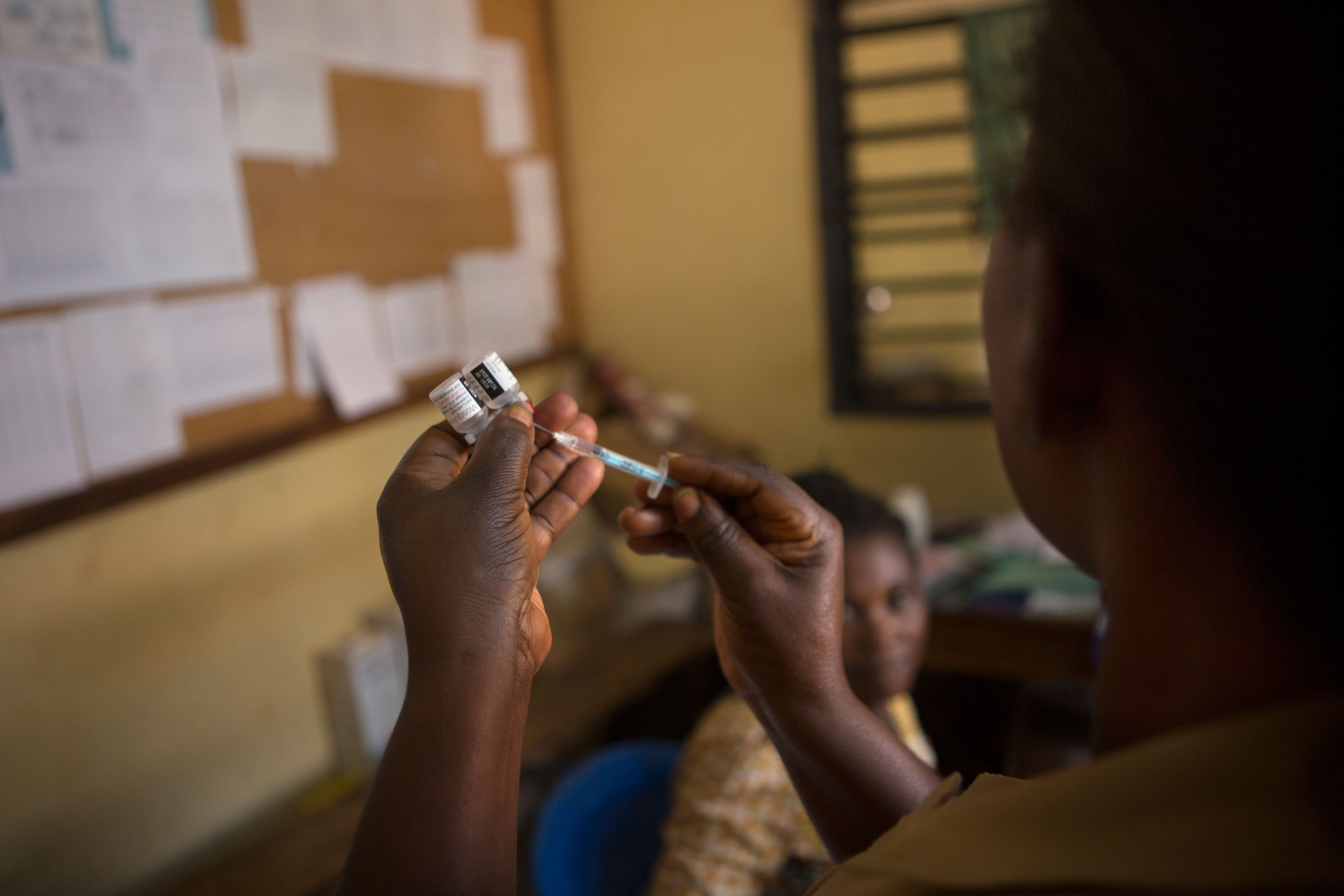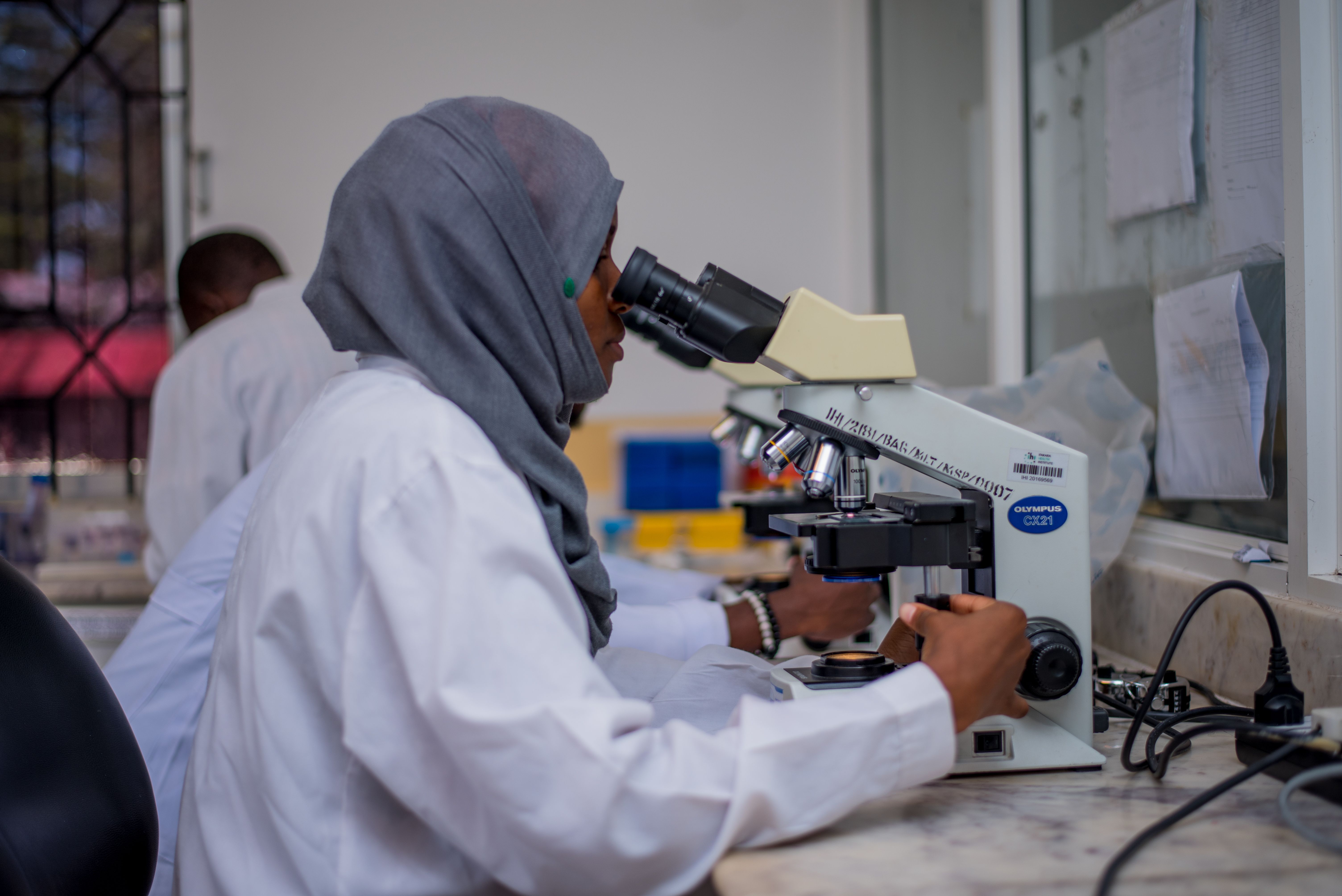After decades of development: A vaccine

Vaccines
Since the 1940s over 100 potential malaria vaccines have made it to human trials, but now two vaccines are breaking boundaries and progressing further than any before them – both are developed by UK organisations.
These new malaria vaccines will be an important new tool to add to our toolbox to help us end malaria, layered with other tools like insecticide-treated nets and treatments.
Headquartered in Britain, GSK has been working for over 35 years on a malaria vaccine, alongside partners such as PATH. The result is RTS,S/AS01, the first vaccine proven to protect against p. falciparum malaria. WHO and the Ministries of Healthhave been running a malaria vaccine pilot implementation study (MVIP) in three African countries since 2019 with support from the Global Fund, Gavi and Unitaid– with more than 3 million doses of the vaccine administered so far.
This vaccine has become the first malaria vaccine to get recommended for broad use by the WHO and receive funding for a global rollout from Gavi.

Oxford University’s Jenner Institute (the people behind the Oxford-AstraZeneca Covid-19 vaccine) has also been developing a malaria vaccine known as R21, which like RTS,S/AS01 has shown promising results in early trials proving to be 77% effective. It is now in its final stage of human trials.
As scientific advances open new areas of research, UK scientific leadership, expertise and investment will remain critical to ensuring the search for a highly effective malaria vaccine is discovered.
Together with other incredible malaria-fighting tools these new malaria vaccines will allow us to stay one step ahead of the ever-changing malaria parasite and mosquito. With vital investment through the Global Fund, we can save millions of lives and boost UK science and innovation.